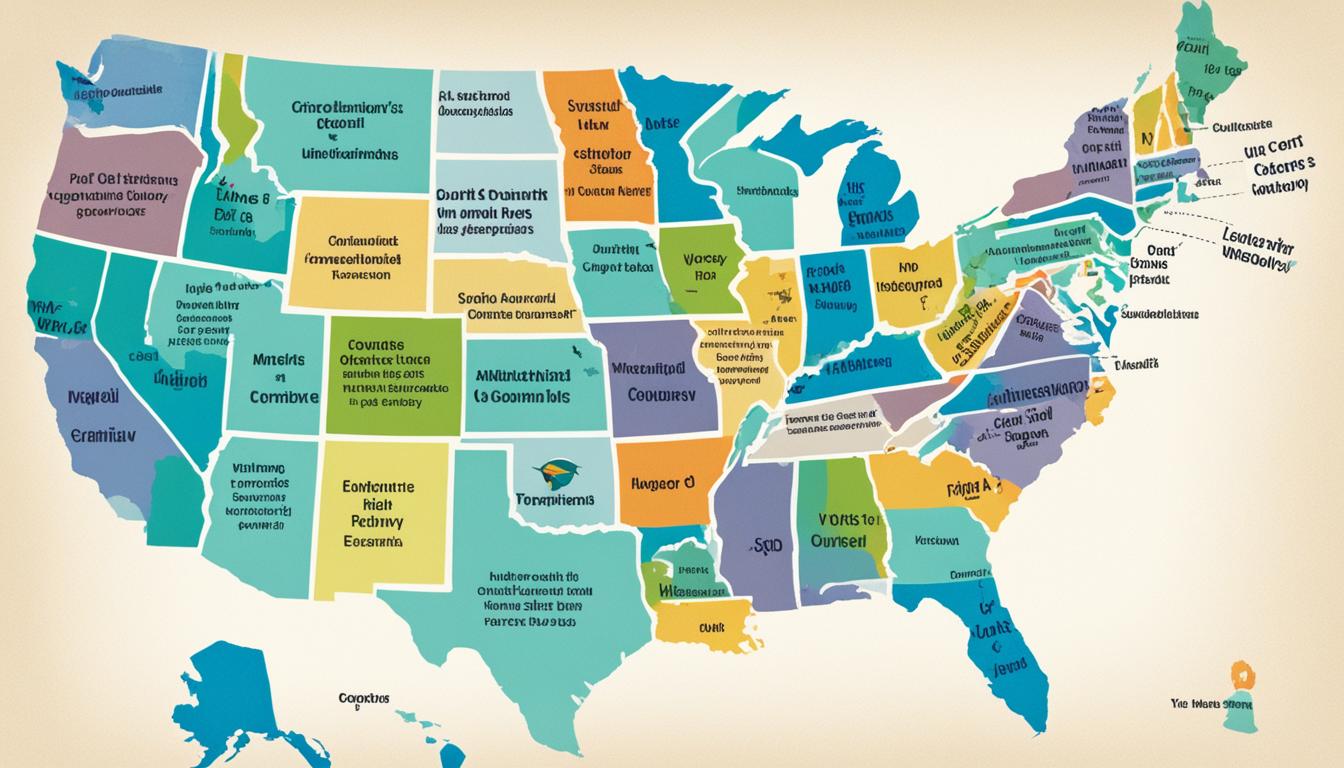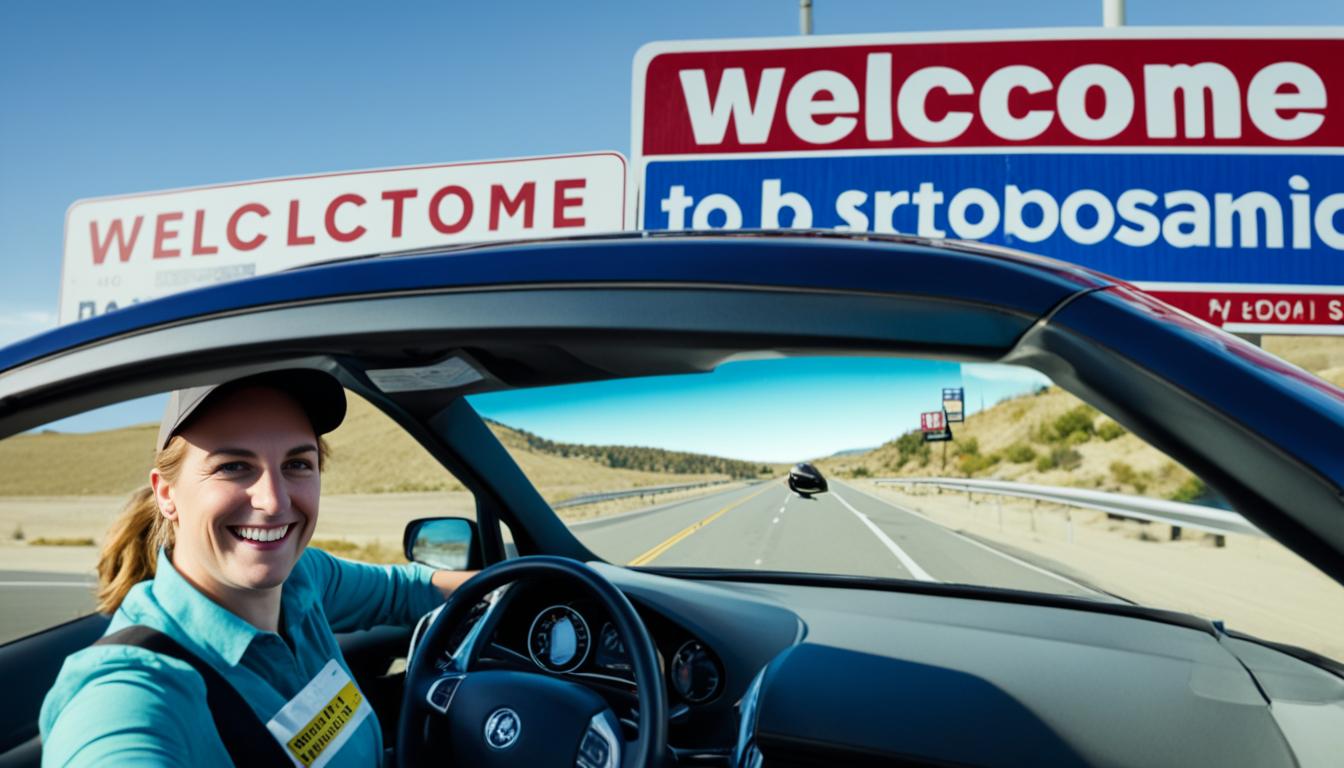For many new drivers, the journey to full driving privileges begins with an out-of-state learner’s permit. Navigating this process involves understanding the reciprocity of learner’s permits, which can vary significantly from one state to another. This essential stage in driver education underscores the need to be well-informed about the states recognizing learner’s permits that originate outside their jurisdiction. In fostering safe and legal driving experiences, it is crucial that permit holders and their guardians research the driving laws pertaining to out-of-state learner’s permits in any state they plan to visit. While some states extend the courtesy of recognizing these permits, others may pose restrictions or not recognize them at all. Drivers should be keenly aware that, even where accepted, the limitations tied to their permits remain fully enforceable.
Key Takeaways
- Reciprocity is not uniform across all states, so understanding each state’s stance is essential.
- Research and preparation are key to ensuring compliance with varying state laws on out-of-state learner’s permits.
- The limitations of your home state’s permit carry over when driving out-of-state.
- Contacting local DMVs for the latest information can provide clarity and prevent legal issues.
- Safe driving practices and adherence to the rules are paramount regardless of where you drive with an out-of-state permit.
Navigating Driving Privileges with an Out-of-State Learner’s Permit
Embarking on the journey of driving across state lines with an out-of-state learner’s permit can certainly seem daunting. It is pivotal for drivers to understand the restrictions and rules that apply when using a learner’s permit in different states. Every state boasts its unique set of regulations and driving privileges, and all too often, these can differ substantially from one’s home state.
To begin with, it’s essential for drivers to be aware of their home state’s specific conditions embedded within their learner’s permit—limitations that could extend or restrict their driving privileges in other jurisdictions. This insight is paramount when aiming to avoid inadvertent violations, as one assumes the responsibility of ensuring compliance with local laws. For many, this becomes a critical exercise in due diligence, necessitating thorough research of specific state requirements and proactive engagement with various Departments of Motor Vehicles for the most accurate and up-to-date information.
Fostering a comprehensive understanding of these norms is not merely a question of legality but also one of safety. Thus, here are practical tips for individuals who are considering or planning to drive with an out-of-state learner’s permit:
- Verify Reciprocity: Confirm if the state you’re visiting extends reciprocity and what the parameters of such an agreement are. This could dictate whether you can legally drive in that state with your out-of-state learner’s permit.
- Understand Local Rules: Each state can have wildly varying rules—some may require an accompanying licensed driver, impose curfews, or set forth different road restrictions.
- Gather Documentation: Always carry proof of your learner’s permit status, identification, and any other documentation that may be relevant when driving out-of-state.
It’s also crucial to highlight that compliance with local traffic laws extends beyond mere adherence to road rules. One must also take into account insurance requirements, which may vary and could necessitate additional coverage when driving out-of-state.
| State | Learner’s Permit Acceptance | Accompanying Driver Required | Additional Notes |
|---|---|---|---|
| New York | Yes, with restrictions | Yes, 21+ years old | Curfew from 9 PM to 5 AM |
| California | Yes | Yes, 25+ years old | No freeway driving |
| Texas | Selective acceptance | Yes, licensed driver in front seat | Must hold permit for 6 months |
| Florida | Yes, with restrictions | Yes, 21+ years old with 1-year driving experience | Daytime driving only for first 3 months |
In conclusion, exercising prudence and due diligence when using your learner’s permit in different states is not only sensible but will also contribute to ensuring that your driving experience is both legal and secure. Being informed and prepared is the key to enjoying your driving privileges without the sword of non-compliance hanging over your head.
What States Allow Out-of-State Learner’s Permits
For novice drivers planning to travel, understanding the patchwork of regulations across the United States is crucial. Each state possesses its own set of rules concerning the recognition of learner’s permits from different states. With the variability in state requirements for learner’s permits, it is essential for learners and their guardians to stay informed about the specific learner’s permit rules across regions from the Western states to the East Coast to ensure seamless driving experiences during travels.
Western States: From California’s Restrictions to Idaho’s Acceptance
In the landscape of Western states and learner’s permits, the golden state of California maintains learner’s permit rules in California that necessitate out-of-state permit holders to abide by the same restrictions as local learners. In contrast, Idaho’s hospitality to out-of-state visitors is exemplified through its learner’s permit rules in Idaho, accepting out-of-state permits with fewer restrictions.
Midwest and Southern Compliance: The Variability in State Requirements
The Midwest states and the Southern region of the United States showcase a blend of policies. These areas present intriguing contrasts in their approach to learner’s permit rules in Midwest states and learner’s permit rules in Southern states. Travelers with learner’s permits might find different shades of requirements and conditions, which command careful navigation to avoid legal roadblocks.
East Coast Regulations: Balancing Local Laws with Hospitality
The storied East Coast takes a diverse stance. Delving into learner’s permit rules on the East Coast reveals that some East Coast states and out-of-state learner’s permits are readily accepted, albeit with particular caveats. This region illustrates the ongoing challenge of balancing local laws and hospitality.
Special Cases in Districts and Non-Contiguous States
Away from the mainland, regions such as the District of Columbia assert specific learner’s permit rules in Districts. Similarly, the unique landscapes of non-contiguous states pose their own requirements, with distinct learner’s permit rules in non-contiguous states and potential special cases for learner’s permits.
| Region | Accepts Out-Of-State Learner’s Permits | Specific Conditions or Restrictions |
|---|---|---|
| California (Western) | Yes | Must adhere to CA restrictions |
| Idaho (Western) | Yes | Fewer restrictions |
| Midwest States | Varies | Check individual state requirements |
| Southern States | Varies | Check individual state requirements |
| East Coast States | Yes, with conditions | Must follow local state laws |
| Districts and Non-Contiguous States | Case-by-case basis | Consult regional DMV |

Key Factors to Consider When Traveling with Your Learner’s Permit
Embarking on a journey as a new driver with a learner’s permit offers an exciting opportunity to gain valuable road experience. However, before you hit the highway, it’s vital to be aware of key considerations that will ensure both your safety and legal compliance. Those with learners’ permits must navigate the patchwork of varying state requirements, a task that demands diligence and thorough research. Beyond familiarizing yourself with the intricacies of state-specific laws, understanding local traffic laws where you intend to drive is just as crucial.
Ensuring proper documentation is at the top of the list for tips for driving with a learner’s permit. Valid identification, your current learner’s permit, and any required supplementary materials must be on hand at all times. It’s wise to carry contact information for the issuing department of your permit as a precaution. Such attention to detail can save you from any unforeseen complications that might arise during traffic stops or at checkpoints. Furthermore, knowing the restrictions tied to your learner’s permit is fundamental. For instance, if your home state requires a licensed adult to accompany you, this rule follows you, irrespective of where you’re driving.
To remain informed and legally secure while navigating the roads with a learner’s permit, it’s beneficial to create a pre-travel checklist that includes the essentials: confirm the status of your permit’s recognition in your destination state, get clarity on supervising driver requirements, and understand any limitations regarding driving hours or conditions. Remember these considerations for traveling with a learner’s permit are not just bureaucratic hurdles but measures designed to protect you and enhance your driving education. As you prepare for your journey, take heart in knowing that preparedness and a strong sense of responsibility are your best companions on the road to becoming a proficient driver.





